-
China’s Mekong River dams undermine neighbors’ economies, food production

Five Chinese dams on the Mekong River’s upper portions have caused rapid changes in water level, and other adverse effects, downstream, especially in Vietnam, Cambodia, Thailand, and Laos, where millions of people rely on the river for water, food, and transportation
-
-
Carbon dioxide “corrodes” ice, causing glaciers, ice caps to crack
The amount of carbon dioxide in the atmosphere has risen from roughly 280 ppm shortly before the industrial revolution to about 390 ppm today; now researchers done atom-level simulations that suggest that increased concentrations of the gas causes ice to become more brittle, and so more likely to break up or crack; this explains the cracking of glaciers and ice caps
-
-
U.S. keeps collecting money for a nuclear waste repository – but has no plans to build one
Illinois utility customers have paid the U.S government $1.9 billion to store spent nuclear fuel from nuclear plants in the state in a permanent national nuclear waste repository; in the last thirty years, the U.S. government has collected $30 billion from utilities toward this permanent storage, and it keeps collecting $750 million a year; trouble is, in February 2009 the Obama administration decided to “defund” the Yucca Mountain nuclear repository project, and the U.S. government no longer has active plans for a centralized nuclear waste storage facility
-
-
New approach to identifying remains allows reopening of cold cases
In an effort to identify the thousands of John/Jane Doe cold cases in the United States, researchers have found a multidisciplinary approach to identifying the remains of missing persons; using the new method, the researchers were able to identify the remains of a missing child forty-one years after the discovery of the body
-
-
U.S. Navy tests the second of two railgun prototypes
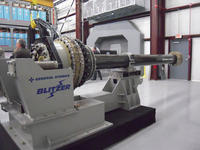
The EM Railgun launcher is a long-range naval weapon that fires projectiles using electricity instead of traditional gun propellants such as explosive chemicals; magnetic fields created by high electrical currents accelerate a sliding metal conductor, or armature, between two rails to launch projectiles at 4,500-5,600 mph; the Office of Naval Research’s Electromagnetic (EM) Railgun program is evaluating the second of two industry railgun prototype launchers at a facility in Dahlgren, Virginia
-
-
Green laser pointer identifies traces of dangerous chemicals in real time
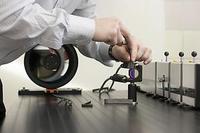
By using an ordinary green laser pointer, the kind commonly found in offices and college lecture halls, an Israeli research team has developed a new and portable Raman spectrometer which can detect minute traces of hazardous chemicals in real time; the new sensor’s compact design makes it a candidate for rapid field deployment to disaster zones and areas with security concerns
-
-
Cutting food losses in half would feed an additional billion people
More efficient use of the food production chain and a decrease in the amount of food losses will dramatically help maintaining the planet’s natural resources and improve people’s lives; researchers have proved a valid estimation, for the first time, for how many people could be fed with reducing food losses
-
-
Study maps greenhouse gas emissions down to building, street level for U.S. cities
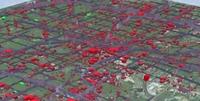
Researchers have developed a new software system capable of estimating greenhouse gas emissions across entire urban landscapes, all the way down to roads and individual buildings. Until now, scientists quantified carbon dioxide (CO2) emissions at a much broader level
-
-
New methods might drastically reduce the costs of investigating polluted sites
In Europe there are over 20,000 complex and large contaminated areas. These so-called megasites threaten scarce land and water resources, create environmental and health risks, and result in economic and social costs; new methods may allow polluted sites to be investigated and monitored long term at significantly reduced costs
-
-
NRC sees no evidence of bad security practices at Michigan nuclear plant
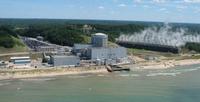
The Nuclear Regulatory Committee (NRC) released information last week about a leak earlier this summer at the Palisades plant near South Haven, Michigan; the plant has been mired in controversy this year, as at least three water leaks have occurred in the past several months, and the plant has one of the worst safety ratings in the United States
-
-
Environmentalists concerned about earthquakes tests near California nuclear plant
The Pacific Gas and Electric Company (PG&E) wants to use air guns to emit strong sound waves into a large near-shore area which includes parts of marine reserves; the purpose: creating three dimensional maps of fault zones near its Diablo Canyon nuclear plant in California; the plans have federal and state officials concerned about marine life and public safety
-
-
Dallas area earthquakes were caused by fracking: geophysicists
Three earthquakes that hit a Dallas suburb last week could be connected to fracking operations, according to a local geophysicist who studies earthquakes in the region; the earthquakes were considered minor, with the biggest one registered at a 3.4 on the Richter scale; no injuries were reported despite many emergency calls
-
-
CO2 emissions as a result of economic growth, decline not symmetrical
Estimating the trajectory of CO2 emissions, an important part of planning for climate change mitigation and adaptation, depends in part on understanding how these emissions are influenced by the economy; new study finds that in years when GDP per capita shrinks, CO2 emissions per capita do not decline in equal proportion to the amount by which they increase with economic growth
-
-
Camera for long-range gas leak detection
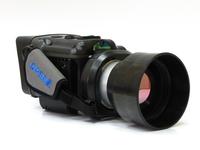
New infrared gas imaging camera equipped with a 75 mm lens; it iscertified for use in Class I Div 2 hazardous locations, enabling remote detection and visualization of gas leaks from a great distance
-
-
Imagining first responders’ high-tech future
What kinds of gear will be needed by future firefighters, EMTs, and police officers? DHS Science and Technology Directorate researchers asked the experts, then applied sophisticated math to discover unlikely patterns
-
More headlines
The long view
New Technology is Keeping the Skies Safe
DHS S&T Baggage, Cargo, and People Screening (BCP) Program develops state-of-the-art screening solutions to help secure airspace, communities, and borders
Factories First: Winning the Drone War Before It Starts
Wars are won by factories before they are won on the battlefield,Martin C. Feldmann writes, noting that the United States lacks the manufacturing depth for the coming drone age. Rectifying this situation “will take far more than procurement tweaks,” Feldmann writes. “It demands a national-level, wartime-scale industrial mobilization.”
How Artificial General Intelligence Could Affect the Rise and Fall of Nations
Visions for potential AGI futures: A new report from RAND aims to stimulate thinking among policymakers about possible impacts of the development of artificial general intelligence (AGI) on geopolitics and the world order.
Smaller Nuclear Reactors Spark Renewed Interest in a Once-Shunned Energy Source
In the past two years, half the states have taken action to promote nuclear power, from creating nuclear task forces to integrating nuclear into long-term energy plans.
Keeping the Lights on with Nuclear Waste: Radiochemistry Transforms Nuclear Waste into Strategic Materials
How UNLV radiochemistry is pioneering the future of energy in the Southwest by salvaging strategic materials from nuclear dumps –and making it safe.
Model Predicts Long-Term Effects of Nuclear Waste on Underground Disposal Systems
The simulations matched results from an underground lab experiment in Switzerland, suggesting modeling could be used to validate the safety of nuclear disposal sites.
